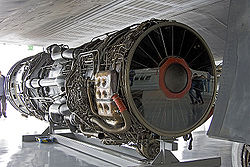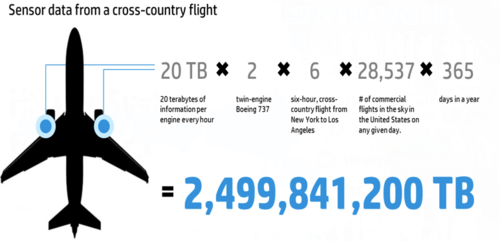The commercial aviation industry is ripe for innovation in the form of Big Data analytics. Jet engines create significant data exhaust during operation, data that can and should be analyzed to increase operational efficiencies and facilitate preventive maintenance of faulty and soon-to-fail parts.
Such analysis should not start once an engine is hoisted onto the wing. Analytics also plays a critical role in the design and testing of jet engines and other aircraft equipment.The result of Big Data analysis as applied to the aviation industry should result in benefits for the airlines, their passengers, suppliers, and the environment.
For example:
- By analyzing data created by jet engines and sensors that collect data on the surrounding environment (temperature, humidity, air pressure, etc.), service providers are able to predict when various parts are likely to fail and take preventative maintenance action. Replacing a soon-to-fail part before it malfunctions is significantly less costly than doing so after the part fails during operations.
- Preventative maintenance reduces aircraft “down time,” meaning more planes are available to service passengers. By further leveraging aggregate data associated with arrivals/departures, weather conditions and other data sources, airlines can better manage their fleets and reduce the number of delayed and cancelled flights.
- Improved customer satisfaction is the likely result of fewer delays and cancellations, potentially increasing customer loyalty and ultimately increasing bookings. By analyzing customer flying patterns, airlines can also identify new routes to add and other services that will benefit both customers and the airline’s bottom line.
- More efficient jet engines consume less fuel and emit fewer environmentally contaminating gasses.
There are, however, significant barriers to the adoption of Big Data in the aviation industry. Among them are the architectural challenges associated with moving large volumes of data from aircraft to a centralized location for analysis. There are also significant cultural and compliance issues, among them who “owns” particular data sets, that must be addressed.
Action Item: Big Data holds significant promise for the commercial aviation industry. Airlines should begin laying the groundwork for taking advantage of operational analytics to improve efficiencies and reduce equipment downtime. Identify the data assets currently available and engage in dialogue with jet engine manufacturers and service organizations to better understand the data available for analysis and delivery mechanism for actionable insights.
Footnotes: For a list of Wikibon clients, click here.






